I haven’t kept up the monthly posting like I’d hoped, but I’m so freaking impressed with myself. I may not have posted much on this blog, but I read my ass of this year and finished Book Riot’s Read Harder Reading Challenge. I had most of it done in mid-November, but it took me a while to find the one remaining book—a picture book—to finish it off. I also finished my Goodreads challenge, but it wasn’t quite as… challenging.
For Goodreads, I set my goal to 120 for 2024, basically allowing for reading 20 picture books and still reading 100 non-picture book books. But it ended up not being picture books that helped me top that number, but rather graphic novels. I read several, but went on a major cat manga kick (though I read some other great non-manga stuff, too).
For the Read Harder Challenge, there were 24 books meeting specific topic etc. criteria, and I managed to get them all. I did change a few of the books from what I said I would in the January post, though I mostly stuck with the plan. Here’s what I read:
Cat Massage Therapy, Vol. 1 by Haru Hisakawa (a manga or manhwa) - very cute, easy read
The Deep & Dark Blue by Niki Smith (a middle grade book with an LGBTQIA main character) - a nice little fantasy about family and gender
The Cat Who Saved Books: A Novel by Sosuke Natsukawa & Louise Heal Kawai (a book about books (fiction or nonfiction)) - I admit that I not love this book - I think it too much on-the-nose philosophy for me
This One Summer by Mariko Tamaki & Jillian Tamaki (a comic that has been banned) - a slightly surreal queer story dealing with abuse (the fact that it was banned is idiotic)
Charming as a Verb by Ben Philippe (a book based solely on the title) - a nice story about a couple of high-achieving Black kids in a sea of rich white kids
Ophie's Ghosts by Justina Ireland (a middle grade horror novel) - I loved this book—it’s very different from the author’s Deathless Divide series (as in it’s MG-appropriate), but it deals with some tough topics about race and history in a meaningful and informative way (it’s sadly relevant today given the efforts southern states have been going to to suppress Black people’s votes)
Act Your Age, Eve Brown by Talia Hibbert (a romance with neurodivergent characters) - I’ve loved every book in this series and this was no exception
"You Just Need to Lose Weight": And 19 Other Myths About Fat People by Aubrey Gordon (a book recommended by a librarian) - all very true, and a bit depressing, but there is some hope there, too
The Art of Saving the World by Corinne Duyvis (a genre book (SFF, horror, mystery, romance) by a disabled author) - this was an interesting multi-dimensional YA sci-fi
No Straight Lines: Four Decades of Queer Comics by Justin Hall (Editor) (a book about drag or queer artistry) - most of it was new to me, but an interesting look at queer comics over the decades
Rob Anderson’s Gay Science event in April (a book by an author with an upcoming event (virtual or in person) and then attend the event) - this book is so, so funny because it plays with stereotypes, which I love as long as it’s not mean (and it’s not mean)
The Many Half-Lived Lives of Sam Sylvester by Maya MacGregor (a YA book by a trans author) - this was a really unusual story that I ended up loving, although it did take me a little bit to get into it
“The Lifecycle of Software Objects” by Ted Chiang (a sci-fi novella) - this was interesting and thought-provoking without being overwhelmingly so (I did also read All Systems Red by Martha Wells, my original intended read for this category)
Maud's Line by Margaret Verble (a historical fiction book by an Indigenous author) - I loved this book about a young Cherokee woman in northeast Oklahoma making not-the-best choices while working hard to both find her purpose and keep her family together
Algorithms of Oppression: How Search Engines Reinforce Racism by Safiya Umoja Noble (a book about media literacy) - a great study of Google’s prejudiced results along with a good discussion of what we can (and should) do about it
Code Name Badass by Heather Demetrios (a YA nonfiction book) - another biography of the truly badass American WWII spy, Virginia Hall
Chronicle of a Death Foretold by Gabriel García Márquez & Gregory Rabassa (Translator) (a book in translation from a country you’ve never visited) - so I didn’t love this, but it was short
Caste: The Origins of Our Discontents by Isabel Wilkerson (a history book by a BIPOC author) - this is one of the best books I’ve ever read on any topic (she’s so crystal clear in explaining things that can seem cloudy and/or complex)
White Fragility: Why It's So Hard for White People to Talk About Racism by Robin DiAngelo (a challenge from any of the previous years’ challenges to repeat: A challenge from 2021 (Read a nonfiction book about anti-racism)) - very good
The Loneliness Files by Athena Dixon (a book that went under the radar in 2023) - some interesting musings on being alone, something I’m quite familiar with
Legends & Lattes by Travis Baldree (a cozy fantasy book) - I originally put off reading this because there was so much hype about it on BookTok, but I finally picked it up and accidentally powered through it in two “school nights”
English as a Second Language by Jaswinder Bolina (an indie published collection of poetry by a BIPOC or queer author) - I am not a fan of poetry and probably never will be because just looking at it on paper makes me feel anxious, but these poems talked about some interesting stuff
Clark and Division by Naomi Hirahara (a “howdunit” or “whydunit” mystery) - a good mystery set just after the WWII Japanese internment with
Big by Vashti Harrison (a picture book published in the last five years) - a really nice book about looking within for strength when the world taunts you for how you look
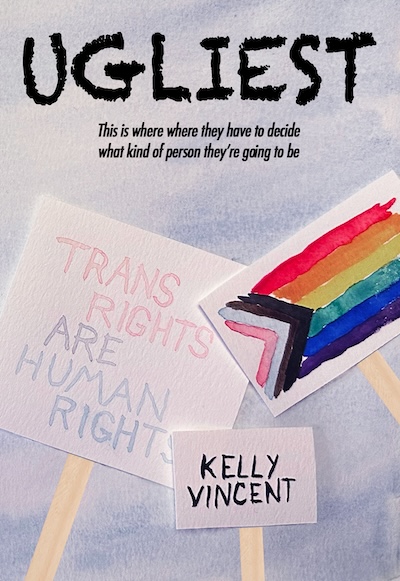
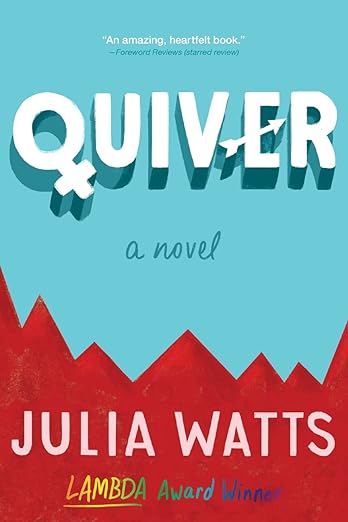 Libby and Zo form a connection over the fence as new neighbors in rural Tennessee, but they couldn’t be more different from each other. Libby’s from a fundamentalist Christian family with its patriarchal tyrant, her “caring” father who punishes her because he “loves” her. Zo’s family is the polar opposite because her parents actually do care about their kids. Zo is gender-fluid and her (I feel like she uses she/her in the book, though it’s possible I’m projecting) parents are very liberal, especially her father, who recommends she stay away from Libby because of her family. He says it’s only going to lead to trouble. Zo chooses to keep the friendship.
Libby and Zo form a connection over the fence as new neighbors in rural Tennessee, but they couldn’t be more different from each other. Libby’s from a fundamentalist Christian family with its patriarchal tyrant, her “caring” father who punishes her because he “loves” her. Zo’s family is the polar opposite because her parents actually do care about their kids. Zo is gender-fluid and her (I feel like she uses she/her in the book, though it’s possible I’m projecting) parents are very liberal, especially her father, who recommends she stay away from Libby because of her family. He says it’s only going to lead to trouble. Zo chooses to keep the friendship.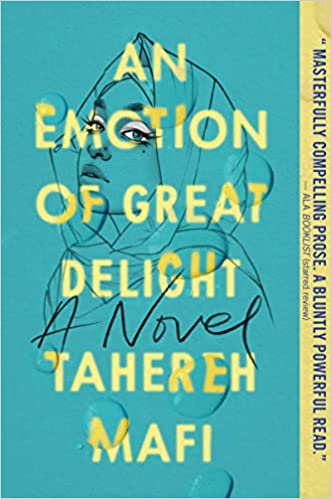 Setup
Setup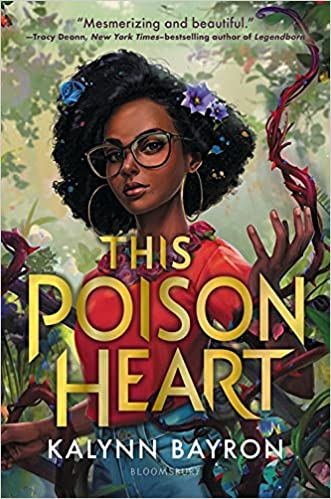 I read this book so fast. Some of you know how I’ve been in a terrible reading slump for over two years and how it’s generally taking me weeks to finish a single book (though I am always reading several at once, but it’s still slowed way down, to what feels like a crawl). So when I say I read this book fast, I mean 7 days, which is a near record for me lately. This was definitely a “couldn’t put it down” book several nights.
I read this book so fast. Some of you know how I’ve been in a terrible reading slump for over two years and how it’s generally taking me weeks to finish a single book (though I am always reading several at once, but it’s still slowed way down, to what feels like a crawl). So when I say I read this book fast, I mean 7 days, which is a near record for me lately. This was definitely a “couldn’t put it down” book several nights.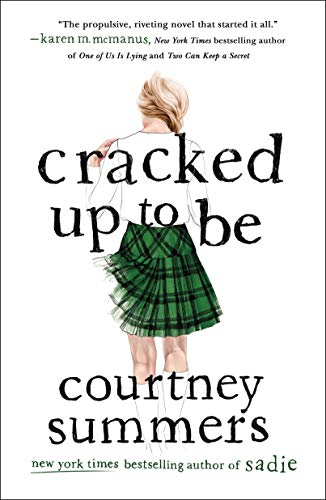 When the book opens, we meet Parker, who’s not doing well and has to see the guidance counselor, which she is not happy about. (Who ever is happy about seeing a high school guidance counselor, actually?) But Parker’s a mess—she’s at a private school and her uniform as grungy and she’s got the wrong shoes, and she failed to brush her hair. Blah blah.
When the book opens, we meet Parker, who’s not doing well and has to see the guidance counselor, which she is not happy about. (Who ever is happy about seeing a high school guidance counselor, actually?) But Parker’s a mess—she’s at a private school and her uniform as grungy and she’s got the wrong shoes, and she failed to brush her hair. Blah blah.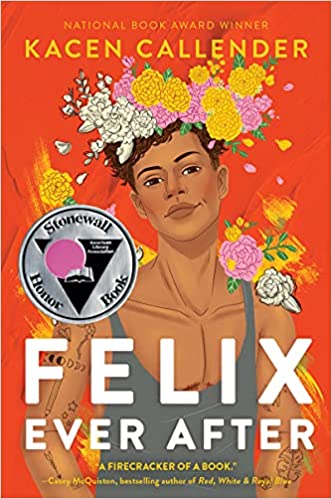
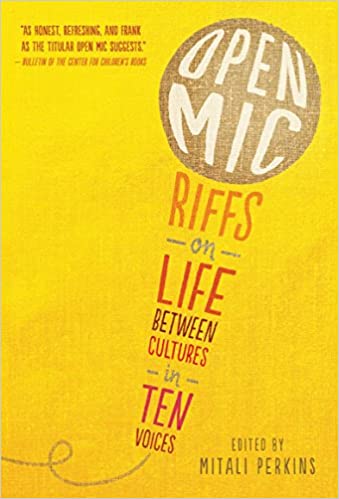 This slim volume of short stories/short memoirs by a variety of ethnically diverse authors is pretty entertaining. Most of the stories are by immigrants or children of immigrants (who have come to the US), with at least one is by a Black American (possibly more—I’m not certain). The goal of the book was to tell stories of people who exist in more than one culture, like so many people do, but with humor. I’ll say it definitely succeeds and I really enjoyed it, even though it wasn’t quite to the level of ROFL (I say that mostly so you don't have unreasonable expectations).
This slim volume of short stories/short memoirs by a variety of ethnically diverse authors is pretty entertaining. Most of the stories are by immigrants or children of immigrants (who have come to the US), with at least one is by a Black American (possibly more—I’m not certain). The goal of the book was to tell stories of people who exist in more than one culture, like so many people do, but with humor. I’ll say it definitely succeeds and I really enjoyed it, even though it wasn’t quite to the level of ROFL (I say that mostly so you don't have unreasonable expectations).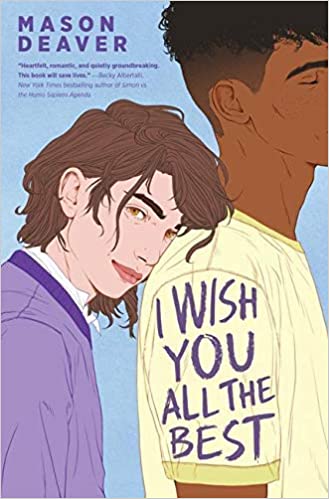 This is one of the first books about a nonbinary teenager I’ve read. I’m definitely on the lookout for more books like this, too. But this one was good, even though it was heartbreaking to watch the character struggle so much with coming out.
This is one of the first books about a nonbinary teenager I’ve read. I’m definitely on the lookout for more books like this, too. But this one was good, even though it was heartbreaking to watch the character struggle so much with coming out.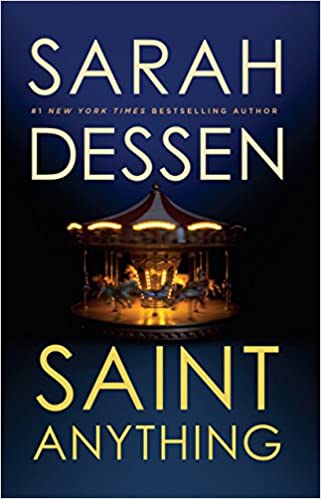 The premise of Saint Anything is that Sydney, a well-behaved teenager who lives in the shadow of her gregarious brother with his oversized personality, has her life upended when that very brother gets himself thrown into prison. Her parents, especially her mom, fixate on supporting the brother and making his prison stay as cushy as possible. But Sydney is torn up by the event that landed her brother in jail—a teen boy riding home on his bike late one night getting hit by Sydney’s drunk-driving brother. The teen survives, but he’s going to be in a wheelchair for the rest of his life. Sydney’s mom doesn’t seem to care at all about the kid, even going so far as to blame him for being out so late at his age.
The premise of Saint Anything is that Sydney, a well-behaved teenager who lives in the shadow of her gregarious brother with his oversized personality, has her life upended when that very brother gets himself thrown into prison. Her parents, especially her mom, fixate on supporting the brother and making his prison stay as cushy as possible. But Sydney is torn up by the event that landed her brother in jail—a teen boy riding home on his bike late one night getting hit by Sydney’s drunk-driving brother. The teen survives, but he’s going to be in a wheelchair for the rest of his life. Sydney’s mom doesn’t seem to care at all about the kid, even going so far as to blame him for being out so late at his age.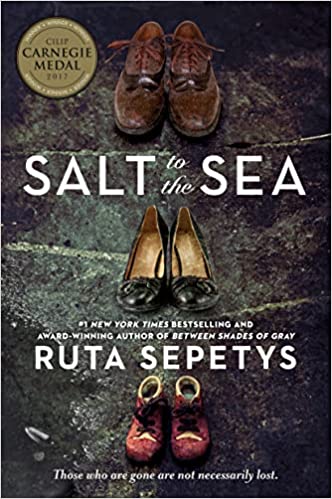 Setup
Setup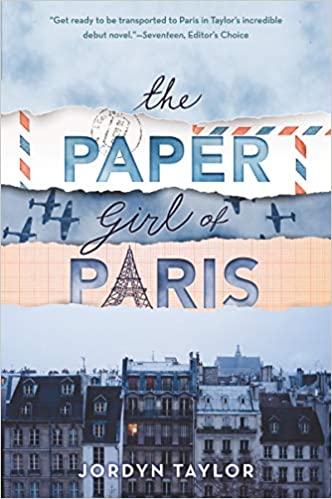 I haven’t been a big reader of historical fiction, even though when I do read it, I usually enjoy it. But I recently read another one I really liked, so I picked up a couple when I went to Barnes and Noble recently.
I haven’t been a big reader of historical fiction, even though when I do read it, I usually enjoy it. But I recently read another one I really liked, so I picked up a couple when I went to Barnes and Noble recently.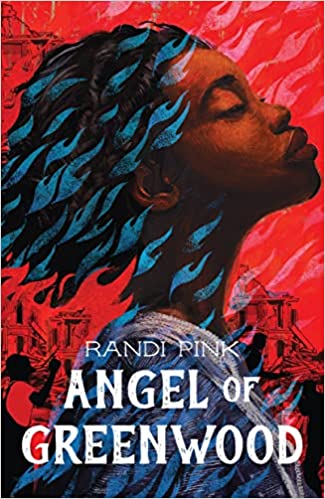 As soon as I knew this book existed, I bought it. It’s set amidst the Tulsa Race Massacre. I have a special interest in that event because I grew up in Tulsa and knew nothing about it until about five years ago. It blows my mind that this is something that was “forgotten.” It makes me so mad, but it fits right in with all the Republicans who are insisting that the unsavory parts of our history shouldn’t be taught in school because it might make some little white kids feel guilty. A little guilt never hurt anyone, and it would make it easier for them to understand their privilege. I think this is actually quite important.
As soon as I knew this book existed, I bought it. It’s set amidst the Tulsa Race Massacre. I have a special interest in that event because I grew up in Tulsa and knew nothing about it until about five years ago. It blows my mind that this is something that was “forgotten.” It makes me so mad, but it fits right in with all the Republicans who are insisting that the unsavory parts of our history shouldn’t be taught in school because it might make some little white kids feel guilty. A little guilt never hurt anyone, and it would make it easier for them to understand their privilege. I think this is actually quite important.